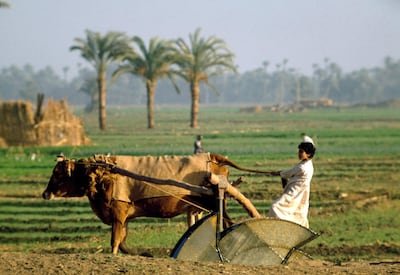An Egyptian television presenter will stand trial next month for insulting the poor.
The charges concern comments Tamer Amin made on his show when he criticised rural couples for not embracing family planning.
He claimed many only had children so they could send them out to work.
The presenter will appear before a Cairo court on March 20.
His programme, Akher El Nahar, was suspended by the private Al Nahar network, which docked a month's salary from Amin.
The state Supreme Council for Media Regulation said it was investigating the broadcast.
Politicians have also discussed the incident, with several demanding Amin be held legally accountable.
Women's rights activists said Amin's knowledge of rural areas was so superficial he had no right to speak about conditions there.
Other television talk show hosts berated Amin for his comments. He faces up to three years in prison or a heavy fine if convicted.
The tirade on family planning in the Thursday edition of Amin's programme came during a week when President Abdel Fattah El Sisi spoke at length about the challenges his government faced as a result of Egypt’s rapid population growth.
Amin courted controversy in 2018 when, hoping to persuade the government to give police officers better salaries, he interviewed the wife of an officer who complained to him about the economic hardship her family endured.
The interview backfired when the Interior Ministry, which runs the police, said it insulted policemen and their families.
Amin was detained for questioning for several days.
In December, Amin was given a suspended two-year sentence after he was found guilty of breaking a law on public insults or breaching privacy when he mocked a Dubai-based model on television in June 2019.
Merhan Keller was in the news at the time for sharing lewd comments sent to her by Egyptian football international Amr Warda during the Africa Cup of Nations competition.
On his show last week, Amin said a high percentage of Egyptians living in rural areas had children for the sole purpose of sending them to work at a very young age so they can help with their families' finances.
He said many rural parents sent boys as young as six to work.
In a comment that stung many Egyptians, he said girls born to families in Upper Egypt – the area stretching south from Cairo to the Sudanese border and known as El Saeed – were "shipped" to Cairo to work as domestic helpers.
Amin apologist for his comments, but that did not mollify his critics.
Neither did it stop a Cairo lawyer, Ashraf Nagy, from filing the complaint that has led to his referral for trial.
Amin's apology, made in a video clip posted online, focused on El Saeed and its residents.
“I am offering an apology that is both clear and frank to all our families in El Saeed and everywhere else in Egypt,” he said.
“I tell every man and woman from El Saeed: Your shoes are on my head,” he said, using a common Egyptian phrase that suggests humility or submission.
People from El Saeed have a reputation for their generosity, loyalty and hard work. But they also have traditionally been the subject of many stereotypes and insensitive jokes, many ridiculing them for being naive.
Egypt has one of the fastest population growth rates in the world.
Its 100 million people are set to reach 121 million by 2030 and 225 million by the end of the century if the annual birth rate – more than two per cent – remains unchanged, according to estimates.



